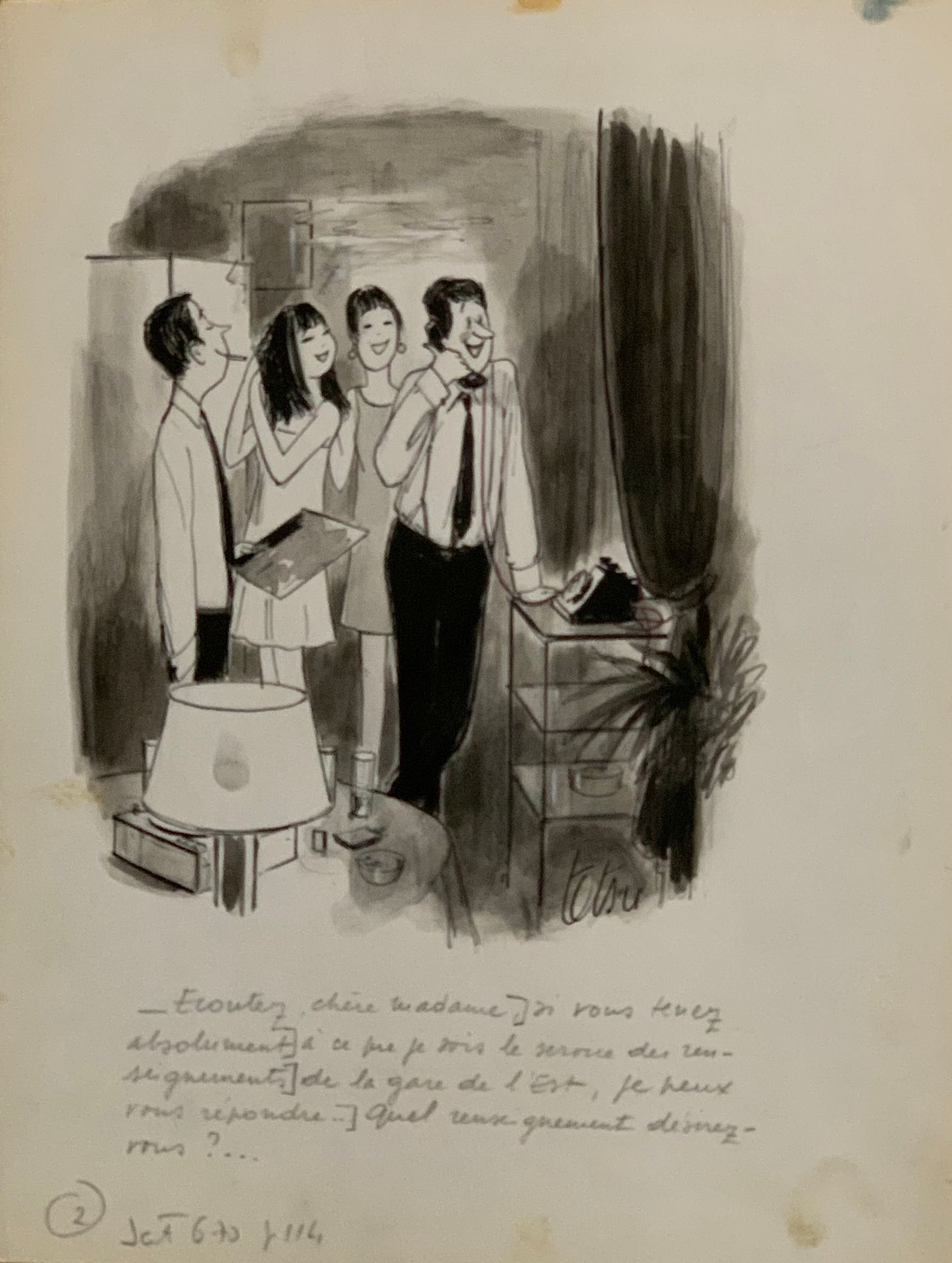Description
TETSU, Roger TESTU (1913-2008) Listen, dear lady, if you insist that I am the information service of the eastern station of the eastern station I can answer you what information do you wish?... Ink and wash on paper signed down right 32,5 x 25cm - 12.79 x 9.84 in. Ink and wash on paper signed lower right
71
TETSU, Roger TESTU (1913-2008) Listen, dear lady, if you insist that I am the information service of the eastern station of the eastern station I can answer you what information do you wish?... Ink and wash on paper signed down right 32,5 x 25cm - 12.79 x 9.84 in. Ink and wash on paper signed lower right
You may also like
